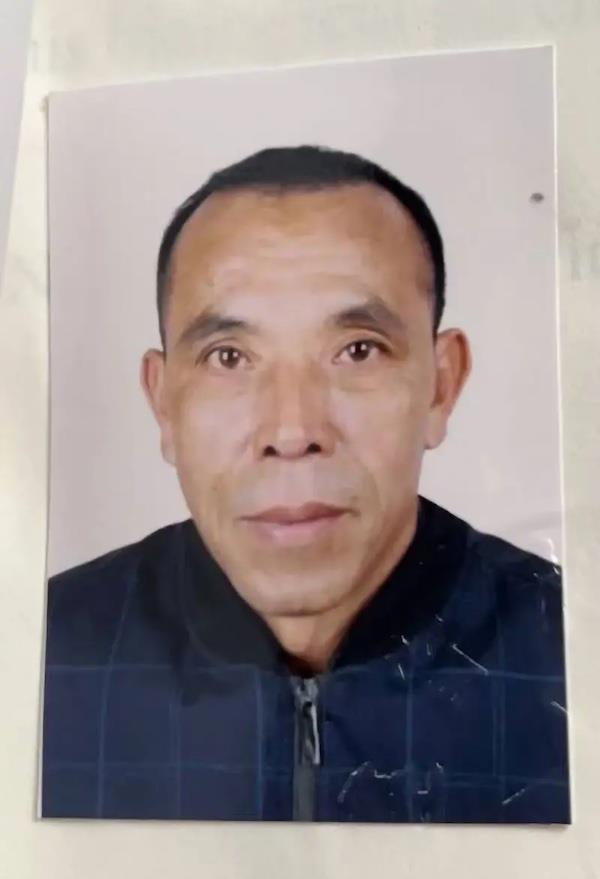(MENAFN- Asia Times)
This article was first published by ProPublica, a Pulitzer Prize-winning investigative newsroom, together with The Frontier
On the morning of April 12, the farmworker woke up struggling to breathe and delirious with fever.
Jiaai Zeng had spent the past month working nonstop at a marijuana Farm in Oklahoma run by fellow Chinese immigrants. The job was brutal, the 57-year-old had told relatives in New York. He said his bosses made him labor up to 15 hours a day in the blast-furnace heat of a greenhouse. He was feeling awful even after a visit to the doctor, so he planned to return to New York that evening for medical treatment.
At 9:38 am, Zeng sent an audio message to a cousin in Manhattan's Chinatown. In an agonized whisper, he asked her to buy a bag of oranges for when he arrived.
“I don't want to eat anything,” he said, speaking a dialect of Fujian province.“I just want to take a look at oranges and see if I'll have an appetite.”
About an hour later, Zeng was unconscious and had no pulse when three people from the farm drove him to a nearby hospital. They dropped him off and left in a hurry while doctors were trying to revive him, according to a hospital report.
By 11:05 am, Zeng was dead.
“This death is not normal,” his nephew, Westin Zeng, said in an interview with ProPublica and The Frontier.“He lives there for a little bit over 30 days: from a healthy person to a dead person. It doesn't make sense to me.... In my mind, there's a logical link from his work to his illness, and from his illness to how they handle that, and a link to his death.”
The farmworker's story gives a glimpse into the harsh and often abusive conditions endured by the tens of thousands of Chinese immigrants who have quietly become the backbone of many US marijuana operations.
“It is one of the most deplorable parts of what we see in this industry,” said Donnie Anderson, the director of the Oklahoma Bureau of Narcotics, who met with Zeng's relatives and ordered an investigation.
Cannabis farms have boomed in states that have passed medical and recreational marijuana laws. But when voters in Oklahoma approved a law allowing the cultivation of medical marijuana in 2018, legislators didn't develop corresponding regulations to protect employees. Oklahoma's historically weak labor enforcement system leaves the protection of workers largely to the federal government. And the US Department of Labor has limited oversight because marijuana is illegal at the national level.
As a result, workers who are already isolated by language and culture have found themselves largely at the mercy of their employers – often criminals who rely on Chinese immigrant labor. As ProPublica and The Frontier have reported, Chinese mafias - some with suspected ties to the Chinese government - have taken advantage of state-level legalization to dominate a nationwide black market for marijuana.

During raids, inspections and investigations at more than a thousand farms over the past five years, Oklahoma law enforcement officers, fire marshals, federal labor inspectors and other officials have encountered a litany of abuses: Bosses
threaten and beat workers,
sexually assault them,
steal their wages,
confiscate their IDs,
restrict their movements and
force them to work in dangerous heat with noxious chemicals and pesticides.
Wrongdoing is rampant at many Chinese-owned farms, where immigrants are often so fearful of their employers and the authorities that they do not cooperate with investigations, according to law enforcement officials, court cases, human rights advocates and workers.
The mistreatment and squalid conditions are the hallmarks of human trafficking, said Craig Williams, the chief agent of the marijuana and human trafficking sections of the Oklahoma Bureau of Narcotics.
“It's hard to convey what it's like until you're standing there, looking at the people, looking at the environment, smelling the environment, seeing what they're living in,” Williams said.“Your heart goes out to them like, 'This is just wrong.'”
While problems are particularly bad in Oklahoma, studies and media reports have detailed similar risks nationwide to laborers, many of them recent arrivals who crossed the Mexican border illegally. Exploitation of Chinese immigrants pervades the marijuana underworld from California to New Mexico to Maine , according to interviews and court cases.
Overseas as well, authorities have found patterns of mistreatment at Chinese-run marijuana sites from Chile to Ireland .
“These are people living in a situation of semi-slavery,” said a police official in Spain, a center of illegal marijuana cultivation in Europe, who spoke on the condition of anonymity for safety reasons.“They are locked up 24 hours a day. They don't know what country they live in. They don't have contact with the outside world.”
During raids in 2021 on cannabis plantations hidden in warehouses near Barcelona, Spain, police freed 10 immigrants from Fujian whom gangsters had forced to work to pay off smuggling debts of up to $35,000. The drug traffickers locked the workers in the dirty, windowless buildings, making them sleep on mattresses on the floor. Some of the victims spent up to a year in captivity, police said.
“Everyone has a different story, but the bottom line is that they have not escaped the darkness of China,” said Ju Ma, a Chinese human rights advocate who runs a migrant shelter in New York that has aided marijuana workers.
In the Zeng case, the federal Occupational Safety and Health Administration and the Oklahoma Bureau of Narcotics are investigating. The Office of the Chief Medical Examiner recently concluded that the cause of the farmworker's death was pneumonia.
“They are making so much money in the marijuana industry, but they are treating the workers like slaves,” Westin Zeng said.“I want to find out everything that happened and get justice for my family.”
The farm's owners have not been sanctioned or charged with a crime in relation to the case. Jeffrey Box, a lawyer for one of them, rejected the Zeng family's allegations that neglect and harsh working conditions played roles in the farmworker's death.
Official data and reports on labor in the marijuana industry are sparse, and Chinese workers rarely talk about their experiences. To report this story, ProPublica and The Frontier interviewed several dozen current and former law enforcement officials in the United States and overseas, other government officials, farmworkers, human rights advocates, lawyers and others. Reporters also reviewed court documents, medical files, government reports and social media posts in English, Chinese and Spanish.
The reporting reveals a saga of despair that remains largely out of sight for the US public. Zeng's case is rare because his family has spoken out. Many Chinese immigrants enter the nation's marijuana industry hoping to plant the seeds of new lives, but they end up suffering in silence.
“If they go missing, no one's going to report anything,” Williams said.“I sincerely wonder how many people are buried on illegal marijuana grows.”
The journey
Zeng was born in a village in Yongtai County, Fujian. His nephew remembers him departing at dawn, to cultivate rice and plum trees, and returning after dark.
“If people were carrying two baskets of stuff, he carried four,” said Westin Zeng, now a 32-year-old business consultant in New York.
A father of two, Zeng also did itinerant manual labor in Shanghai and other cities to support his family, including his father and a grandson who are both disabled. In 2021, he converted to Christianity (his US relatives are Christians), which caused police in his hometown to harass him, according to an account he later wrote for a US immigration court. At the same time, the pandemic was worsening China's economic woes and the hardships of its working people.

Jiaai Zeng. Photo: Courtesy of his family
Zeng decided to leave. His US relatives lent him about $65,000 for the smuggler's fee. The money included a payoff to expedite issuance of a passport by Chinese officials in Fujian, a coastal province whose longtime smuggling underworld intertwines with official corruption.
MENAFN18072024000159011032ID1108453515